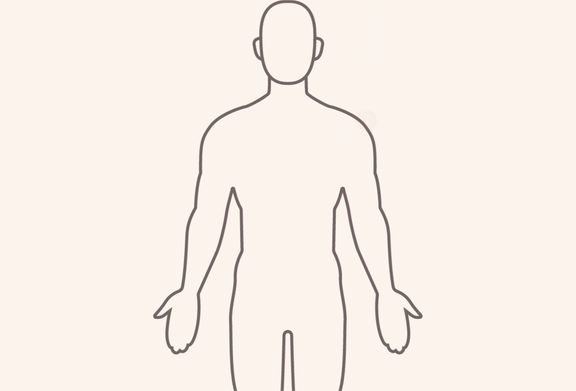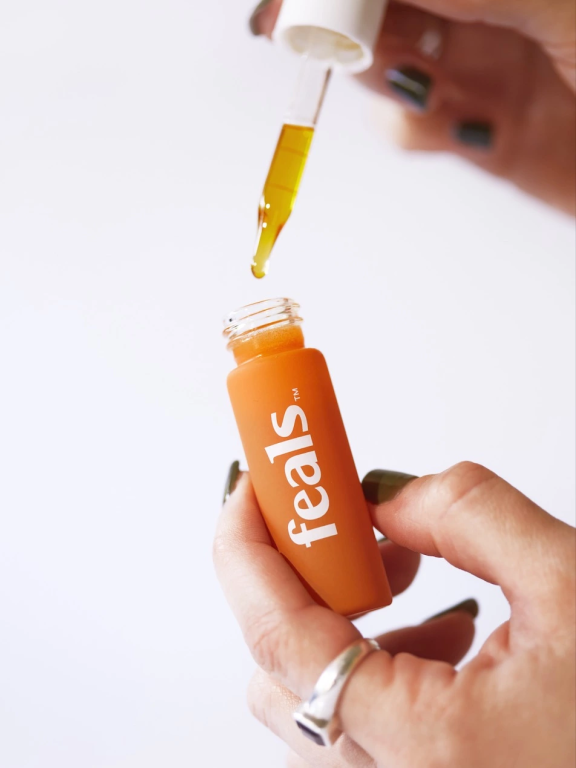The human body is hard-wired to cope with stress, but for many of us recent events have left everyday levels at an all-time high. So what can we do to help mitigate this? It starts with understanding the body’s relationship to stress and immunity. Unsurprisingly, stress’s effects are cyclical: feeling anxious triggers your body’s stress response and the stress response can cause you to feel anxious. We tapped neuroscientist Josh Kaplan, Ph.D., a professor at Western Washington University who runs a lab studying the benefits of CBD to talk us through it—both what stress does to the body and how CBD may help us manage this reaction.
Our body’s stress response has evolved to help us escape predators, not necessarily deal with the bombardment of a 24-hour news cycle.
When you detect a stressor, the brain responds by stimulating the body to produce adrenaline and cortisol, which prepares the body to escape a threat—real or imagined. It’s a body-wide effort, in which you’ll experience increased alertness and a shutdown of any non-essential activities. This combination of reactions is known as the “fight-or-flight” response, and your body undergoes the same response to stress regardless if it were running from a bear or scrolling through social media.
Yes, in fact, they’re intricately linked: Feeling anxious about something can trigger the stress response, and the stress response itself can cause feelings of anxiousness.
The good news is, if we limit the number of stressors in our lives, our stress response serves as its own brake system; it shuts itself off. However, if we fail to give it this opportunity, the stress response’s ability to break weakens, which may lead to chronic stress.

Yes—since the primary role of stress response is to prepare the body for a threat, non immediately essential functions are shut down in order to put much needed energy towards escaping. It takes a lot of energy to fight off infection and illness, so, as a result, the immune system weakens during stress.
CBD has been shown to help manage anxiety and the body’s stress response by helping to normalize the activity across numerous regions of the brain, including the amygdala and hypothalamus, which are most often associated with anxiety and stress.
In lab animals, these effects are associated with CBD's ability to increase levels of serotonin and the endocannabinoid anandamide, two brain chemicals which are believed to improve mood and induce a sense of calm.
The endocannabinoid system, or ECS, is a network of chemicals and receptors that regulates many of our brain and body functions, including mood and stress levels, and balances our immune system. CBD acts in several ways. At present, there are only two known endocannabinoids, 2-AG and anandamide, that are involved in the resilience to stressful events. When levels are low, problems such as increased anxiety arise.

Our bodies engage in a coordinated response to stress, which can become problematic over time. It also makes us feel anxious. CBD oil helps combat the harm caused by this stress response by activating serotonin receptors and increasing levels of anandamide known as the “bliss chemical”. Together they regulate fear and anxiety-related behaviors. Research shows that CBD increases levels of anandamide by blocking its breakdown. Low levels of anandamide have been associated with mood disorders like anxiety and depression so boosting its levels can help restore balance in the ECS.
So while scientists haven’t been able to point to a single CBD action that contributes to a sense of calm and relaxation, it’s clear that the effects are the result of multiple actions working together.
These statements have not been evaluated by the Food and Drug Administration. This product is not intended to diagnose, treat, cure, or prevent any disease. This article is for informational purposes only. It is not, nor is it intended to be, a substitute for professional medical advice, diagnosis, or treatment and should never be relied upon for specific medical advice.
